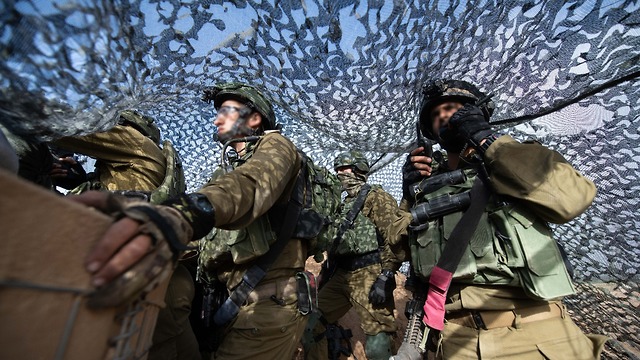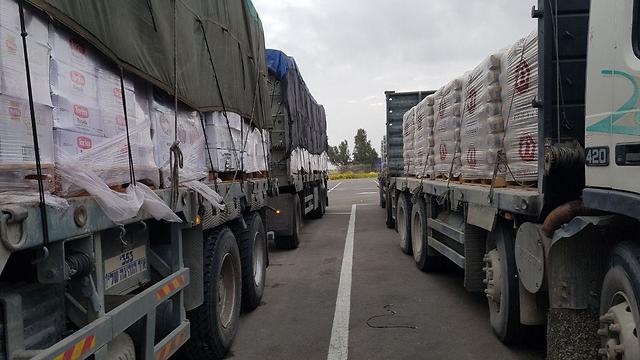

The Gaza time bomb is still ticking
Analysis: The way ahead for Israel and Hamas is clear, with a plan to incrementally improve the situation on the ground; it is impossible to say whether it will work, but the terror group has been told it is now answerable to Egypt for any further 'mistaken' rocket launches and the IDF is acting with restraint
Throughout Saturday, the new post of the IDF high command had the tense feeling that a time bomb was ticking somewhere nearby. All eyes were fixed on the screens and the data that the Southern Command was receiving from the field. The planes waited, fueled and armed.
The order for troops to begin moving out from staging points towards the Gaza Strip was closer than ever, and everyone in the room could feel it.
Sometime during the afternoon, the ticking stopped. Just like in an action thriller, someone had cut the right wire with seconds to spare before the explosion. All of the players - Hamas, Israel and the Egyptians - breathed a sigh of relief.
The Egyptians were able to find a convergence point between Israeli and Hamas interests at least for the next few days, perhaps even until after the April 9 elections. But the detonator is still attached and the charge is still hot – the countdown could resume at any point. Therefore, the entire army is still on alert in the south, in the north and in the West Bank.
In a moment of sanity, both sides have assumed a gradual process of normalization, which could even be extended – incrementally – to last for more than a year.
In other words, in the final seconds before the blast, the two parties returned to the point on the board at which they stood in the immediate aftermath of Operation Protective Shield in 2014, with the same "phased plan" for calm.
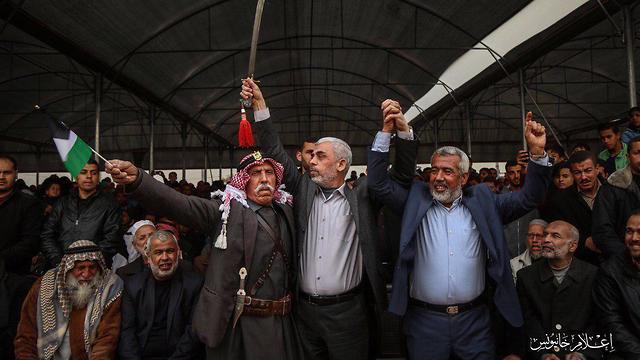
In the first stage, Hamas commits itself to stopping the firebombs sent by balloon, the nightly harassment and the flotillas. The demonstrations can continue, but all the organizations active in the Gaza Strip have promised the Egyptians that they will create a security cordon to prevent demonstrators from reaching the security fence - as was the case on Saturday.
It turns out that of the tens of thousands who took part in the demonstrations, almost 20% were "stewards" whose job was to prevent the masses from nearing the fence.
In fact, before the protests began, the Egyptians - at the request of Hamas - summoned representatives from all the organizations, including Islamic Jihad, and received a pledge that everyone - not just Hamas - would send "stewards."
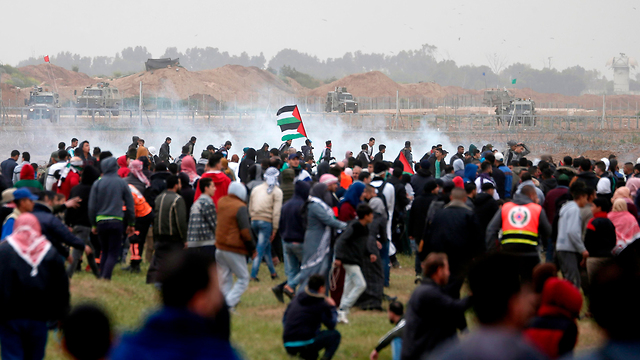
As for the "mistaken" firing of long-range rockets into Israel, Hamas has promised the Egyptians - and has already launched - a comprehensive review of the firing locations and to correct all the "mishaps" and check the "procedures."
Failure to do so, the Egyptians declared, would mean settling accounts with us after the next so-called mishap, and not with the Israelis.
For its part, Israel committed to immediately returning the crossings in to Gaza to normal operations and to send in fuel in order to restart the electricity turbines in the Strip. (Some of the Gaza turbines are not currently working because the substitute for Israeli fuel caused blockages and breakdowns.
Hamas has now received a permit to start repairing the turbines and operating them with the fuel that is now coming in from Israel. The Jewish state has also committed to increasing the supply of water into Gaza, and doubling its amount of electricity.
Hamas has also been pledged $30 million per month for the next six months, which will go towards public works as part of UN projects, and Israel has promised to allow Hamas to export agricultural goods not only to the West Bank but also to Israel and Europe. The fishing zone off the Gaza coast will also be extended to 12-15 nautical miles, except in the southern and northern Strip.
So far the first stage is also the test phase. If either side fails, the time bomb will begin ticking once again. To the IDF's credit, in must be said that the command that came down from the chief of staff on Saturday - to show maximum restraint - was meticulously followed.
Israel knew on Friday about the agreements Hamas reached with the Egyptians. The terror group's first test were the Saturday demonstrations, with the Israeli defense establishment giving the organization an opportunity to stand by these agreements, despite the breaches.
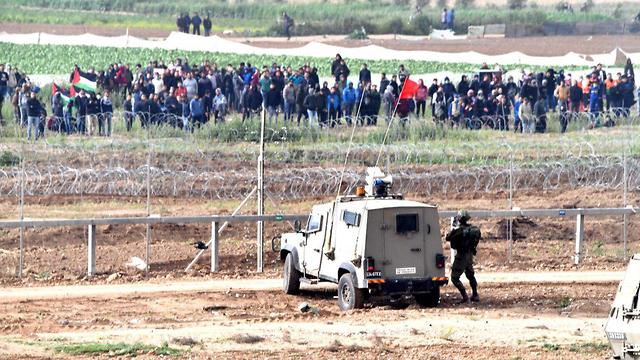
The number of IDF snipers deployed along the border was three times higher than in previous weeks, but the number of shots fired was much lower than the average Friday at the Gaza fence.
Israel has also known for years what the next stages will be in the understandings with Hamas, which are planned to be implemented after the elections: projects to rehabilitate the Gaza Strip, renew the infrastructure for water and electricity supplies, housing and sewage, increase employment and more.
At this stage, the sides will deal with the issue of POWs and MIAs. It all depends, as it has for the past four years, on political, security and diplomatic developments.
Can there be quiet? Is there even the will? Perhaps there is, and perhaps the two sides will get there without the need for yet another round of fighting. Time will tell.














